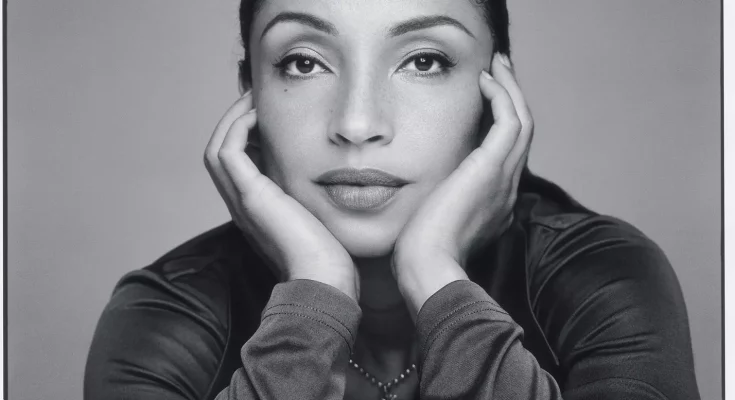In a rare and reflective interview, Sade Adu, the world-renowned British-Nigerian singer whose velvety voice and elegant artistry have captivated audiences for decades, has finally opened up about the origin of her name and the story behind how she came to be known to the world as simply “Sade.” For an artist who has always preferred to let her music do the talking rather than indulge in public commentary about her personal life, her decision to speak on the subject is both significant and deeply telling. The name itself has long carried an aura of mystery, timelessness, and grace, but few have fully understood the cultural and familial roots that shaped it. Sade’s revelation is more than just about identity—it is about heritage, history, and the complex fusion of African and Western influences that have defined her career.
Born Helen Folasade Adu on January 16, 1959, in Ibadan, Nigeria, Sade was given a name that is steeped in Yoruba tradition. Folasade, which translates to “Honor confers a crown” in Yoruba, is a name rich in symbolism, carrying the kind of poetic resonance that seems destined for someone whose career would be marked by grace, dignity, and quiet brilliance. In her recent discussion, Sade explained that the choice of her name came from her father’s side of the family. Her father, Adebisi Adu, was a Nigerian lecturer in economics, and her mother, Anne Hayes, was an English nurse. Their union represented the meeting of two cultures, and their daughter’s name reflected a desire to honor her Nigerian heritage. However, as Sade recounted, while her given names were Helen Folasade, it was the middle name—Folasade—that became the essence of her identity.
When she was young, friends and relatives in Nigeria naturally shortened Folasade to Sade, a common practice in Yoruba culture where names are often lovingly abbreviated without losing their significance. Sade revealed that she grew up hearing this affectionate version of her name from those around her, and it quickly became second nature for her to respond to it. By the time she moved to England as a child with her mother following her parents’ separation, Sade had already embraced that shortened form, and it followed her through school, friendships, and later, her music career. She explained that the familiarity of “Sade” provided both comfort and continuity in a world where she often felt torn between two cultures. It was a name that kept her tethered to her Nigerian identity even as she built a life in the United Kingdom.
In the entertainment industry, simplicity and memorability often play a decisive role in shaping an artist’s public persona. When Helen Folasade Adu began pursuing music and performing with her band in the early 1980s, the name “Sade” not only stuck but seemed to embody her understated yet powerful artistry. She explained that using Sade as her stage name was never a conscious marketing strategy—it was simply the name she had always been called by family and close friends. Yet, in its elegance and brevity, it gave her an iconic presence. To this day, fans around the world often forget that her full name includes Helen, a reminder of her English background, and Folasade, the deeply symbolic Yoruba root of her identity. For Sade herself, both dimensions matter, but the name by which she became globally recognized represents a bridge between them.
Sade also pointed out that names in Yoruba culture carry deep spiritual and philosophical meaning. They are not chosen arbitrarily but reflect prayers, hopes, and affirmations bestowed upon a child. Folasade, meaning “Honor confers a crown,” is a name that was meant to be both a blessing and a guiding light, and Sade reflected on how it seemed to define her path, even in ways she could not have anticipated. She spoke about how her artistry has always been about dignity, subtlety, and maintaining a regal poise in an industry that often rewards flamboyance and controversy. Her music, too, carries an unmistakable nobility in its restraint, much like the crown referenced in her name. In explaining this connection, Sade allowed her audience to see how deeply intertwined her cultural heritage is with the very essence of her artistry.
The singer also addressed the misconception that “Sade” is the name of the entire band, which has been a point of both amusement and occasional frustration over the years. In reality, Sade is the name of the frontwoman herself, but it became synonymous with the group as they rose to international fame with hits like “Smooth Operator,” “Your Love Is King,” and “No Ordinary Love.” This merging of identities between herself and the collective was something she embraced over time, but in clarifying the origins of her name, she wanted to stress that it has always been deeply personal. “It’s not just a stage name or a band title,” she explained. “It’s who I am, rooted in my family, my culture, and the story of where I come from.”
What makes Sade’s explanation especially poignant is the way it highlights the experience of many children of mixed heritage who grow up navigating multiple worlds. For her, the name was more than just a label—it was a symbol of belonging. In England, where her Nigerian identity might not always have been fully understood, “Sade” allowed her to maintain a connection to her roots. At the same time, its simplicity made it accessible to English speakers, bridging two cultural realities. She recounted how, as a child, she sometimes felt out of place in England, but her name gave her a quiet strength, reminding her that she came from a lineage rich in history and meaning.
Her decision to finally speak about the origin of her name after decades of maintaining privacy is reflective of Sade’s evolving relationship with her legacy. As an artist who rarely grants interviews and has been famously elusive in the media, this moment of openness is not just about personal history but also about cultural recognition. In a world where many African names are often misunderstood, mispronounced, or even discarded for the sake of convenience, Sade’s embrace of her Yoruba heritage through her name stands as a statement of pride and authenticity. By sharing the story, she also contributes to a broader conversation about identity, reminding her audience that names carry the weight of history, family, and meaning that deserve to be honored.
Sade also reflected on how her name has shaped her connection with fans. Many have named their children after her, inspired not just by her music but by the elegance of the name itself. She expressed humility and gratitude for this, noting that it affirms the universality of her artistry—that something so personal to her could resonate with people across different cultures and continents. She described it as “a kind of beautiful cycle,” where a name rooted in Yoruba tradition has now traveled the world and been embraced by new generations. This cultural exchange, she believes, is a testament to the power of music to bridge divides and the power of names to carry meaning beyond borders.
Throughout the conversation, Sade was careful to emphasize that while the name has played a defining role, it is ultimately the values and experiences attached to it that matter most. Her journey has always been about balance—between fame and privacy, African and European heritage, vulnerability and strength. The name “Sade” has been a constant in that journey, a thread that ties her personal story to her artistic identity. Even now, decades into her career, it continues to carry the essence of who she is: an artist of quiet confidence, timeless beauty, and cultural depth.
As she concluded her reflection, Sade acknowledged that names are powerful markers of identity, but they also evolve with us. For her, what began as a traditional Yoruba name given by her father has become an international symbol of elegance and artistry. Yet at its core, it remains what it always was: a gift from her family, a reflection of honor and heritage, and a compass that has guided her through a life of extraordinary achievement. In explaining the origin of her name, Sade not only satisfied long-standing curiosity but also reminded the world that behind every artist is a story that is deeply human, deeply cultural, and profoundly meaningful.
By offering this glimpse into her personal history, she has added a new layer of richness to her legacy, one that fans and admirers will carry with them as they listen anew to her music, now understanding that the name on the album covers is not just a stage persona but a living embodiment of honor, heritage, and grace.



